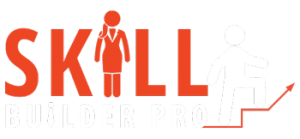Building a skill takes time and dedication. It can be more challenging when you’re in a fast-paced environment and work requires you to more flexible. Sometimes, your priorities in developing a skillset will be affected by abrupt changes. Despite that, it doesn’t mean you’ll have to be stuck in a loop when it comes to learning useful skills. However, you must focus on your adaptability and flexibility so that you can keep up with the busy environment.
Here are four tips on how you can improve your flexibility:
1. Learn from your peers
Within your organization, you will meet a lot of people, and most of them will stand out in terms of being adept. Observe them and learn from their ways. Try to incorporate their methods into your habits and improve your adaptability one step at a time.
You can also ask them personally about the specific techniques they use to be more effective and accepting of brand new challenges. By doing so, you’re basically thinking of them as your mentor, and learning from an experienced individual is a proven way of improving flexibility.
2. Embrace new challenges
Staying in your comfort zone is what you want to avoid when seeking growth. You won’t learn new things when you keep locking yourself from new opportunities that make you uncomfortable. Instead, you must embrace new challenges and open your doors to things that come your way.
By worrying about how new opportunities will affect your existing workload and your life in general, you’re denying yourself the chance to improve upon areas you’re lacking. Stop thinking about failure. No matter how unworthy you feel you are, you’re not going to grow when you restrain yourself. Furthermore, mistakes are the best teachers. After all, they say, “You live and you learn,” so live in the moment.
3. Stick to a better mindset
Instead of dwelling on your chances of failing before you even accept changes, you need to rewire the way you think about yourself. Be more self-confident and stop doubting your capabilities. The greatest enemy of improving flexibility is saying “I can’t,” which means you’re already closing the door on self-improvement rather than testing how it goes.
You must keep a calm composure and look for ways to do things instead of saying no all the time. When faced with monumental obstacles, try to brainstorm possible solutions and make a habit of thinking creatively. That will set you to the path of being successful in overcoming adversity.
4. Stop dwelling on the past
Everyone knows how it feels to make embarrassing mistakes. Even the top-tier executives of your organization must have done something they regret doing. The lesson here is that you will make mistakes, but don’t overthink them. Stop thinking about what you could’ve done. Instead, come up with ways to ensure that you won’t make the same mistake again.
Again, your experience is the best teacher, but don’t spend too much time thinking about changing the past. Unless you have a time machine, then you’re not doing yourself any favor at the moment. Being flexible entails wisdom, and that’s what you need to do. Focus on gaining wider knowledge from your mishaps and set yourself up for success.
Looking for more tips on improving your flexibility? We offer short courses that can help improve your soft skills, such as collaboration and conflict resolution. Contact us today to learn more!
